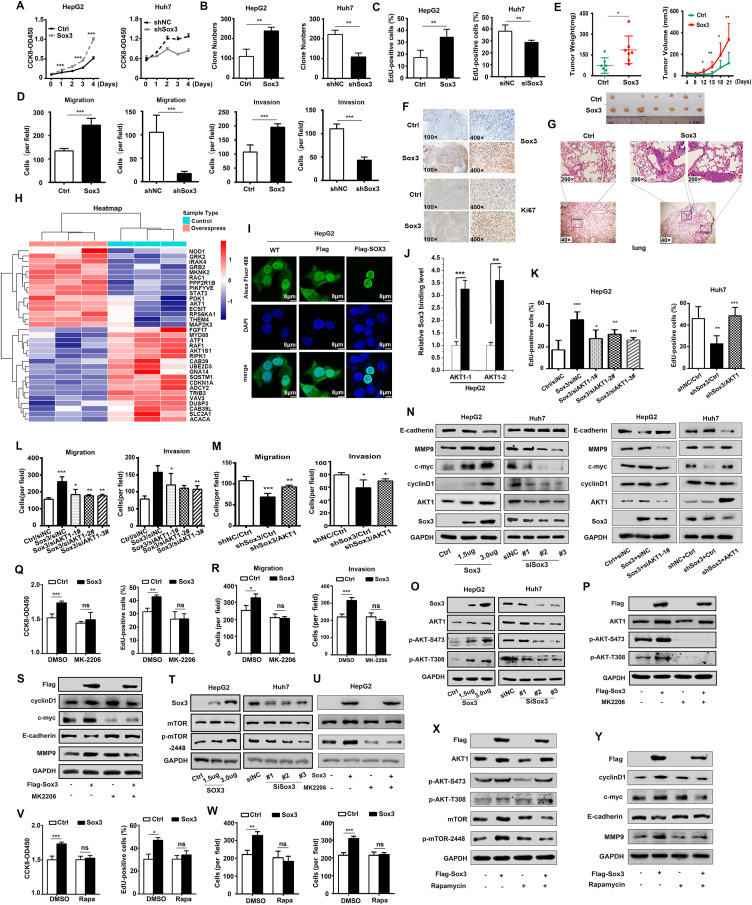
The AKT1-mTOR signaling cascade is crucial for SOX3 to promote hepatocarcinogenesis


Sex-determining region Y-box protein 3 (SOX3) is a member of the SoxB1 transcription factors subfamily including SOX1 and SOX2, first identified based on homology to the high mobility box.1 The oncogenic potential of the high mobility group box protein SOX3 has been widely validated. However, there have been inconsistent reports of SOX3 expression in hepatocellular carcinoma (HCC). For example, Zhang et al showed that SOX3 mRNA levels were not significantly different between the tumor and its corresponding adjacent normal tissues.2 Contrarily, a noteworthy contrast was revealed by Li and colleagues,3 who reported an evident up-regulation of SOX3 expression in 188 HCC samples from the TCGA database, compared with 50 normal liver tissues.3 In contrast to these findings, Yang et al offered compelling evidence indicating the association of SOX3 with tumor progression and unfavorable prognosis in HCC.4 However, the specific role and mechanism of SOX3 in these reports had not been investigated.
